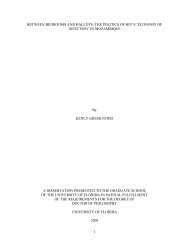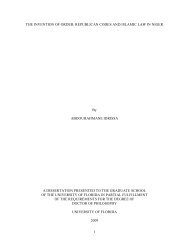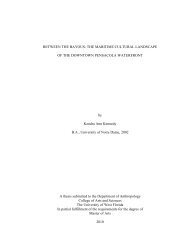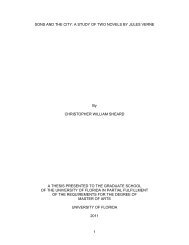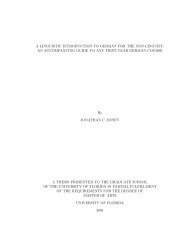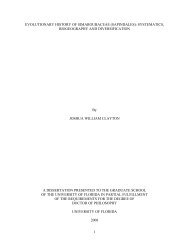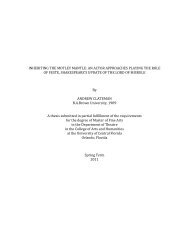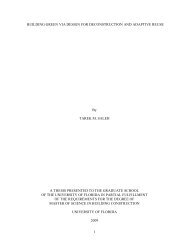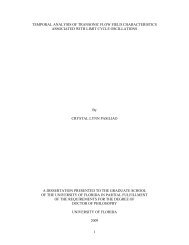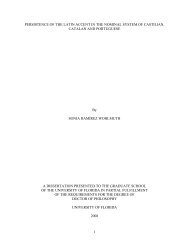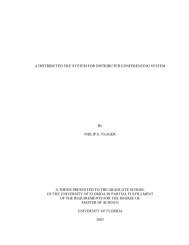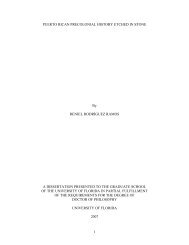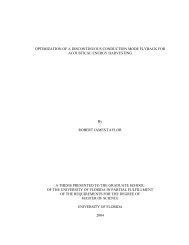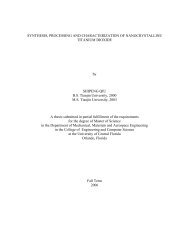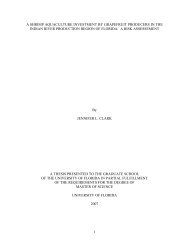t b a b a
t b a b a
t b a b a
You also want an ePaper? Increase the reach of your titles
YUMPU automatically turns print PDFs into web optimized ePapers that Google loves.
Table 6.1: The time required for a single gate operation, τgate, the decoherence time of a<br />
qubit, τdch, and the number of gates that can be traversed before a register of qubits is<br />
affected by decoherence, ngates.<br />
Qubit implementation τdch(sec) τgate(sec) ngates<br />
Nuclear spin 10 4 10 −3 10 7<br />
Trapped Indium ion 10 −1 10 −14 10 13<br />
Quantum dots/charge 10 −9 10 −12 10 3<br />
Quantum dots/spin 10 −6 10 −9 10 3<br />
Optical cavity 10 −5 10 −14 10 9<br />
traversed before a register of qubits is affected by decoherence, for several qubit implementa-<br />
tions [HFC03,LOJ05,PJT05,VSB01]. We notice a fairly wide range of values for the number<br />
of quantum gate operations that can be performed before decoherence affects the state.<br />
The information in Table 6.1, in particular the decoherence time, can be used to determine<br />
the length of an error correction cycle, the time elapsed between two consecutive error<br />
correction steps. The number of quantum gate operations limits the complexity of the<br />
quantum circuit required for quantum error correction.<br />
The Quantum Error Correction theory is based upon the assumption that the quantum<br />
system has a constant error rate ɛ. This implies that once we correct an error at time tc, the<br />
system behavior at time t > tc is decoupled from events prior to tc.<br />
The Markovian error model is violated by physical implementations of qubits; for exam-<br />
ple, in a recent paper Novais and Baranger [NB06] discuss the decoherence in a spin-boson<br />
model. The authors assume that the qubits are perfect, thus the only possible errors are<br />
due to de-phasing and consider a linear coupling to an ohmic bath. Then the Hamiltonian<br />
85



